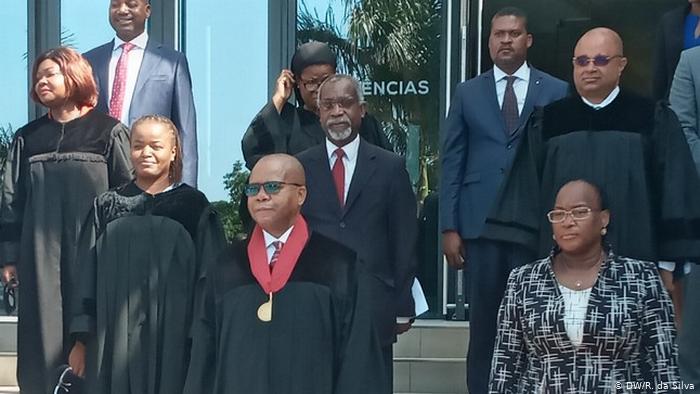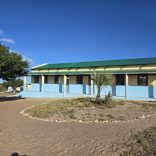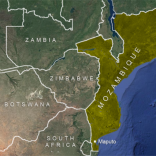Mozambique: More than 50,000 in Mabalane and Chibuto still consuming unsafe water
Mozambique: Lawmaking lacks transparency – Bar Association

Illustrative Photo. [Photo: Deutsche Welle]
- The Mozambican Bar Association institution has highlighted the application of some of the measures approved in the context of combating the Covid-19 pandemic. The criticisms were made this Monday (01.02), at the opening of the new judicial year.
The Mozambican Bar Association says that the country has seen setbacks in transparency and credibility in some legislative processes.
Speaking this Monday (01.02) at the opening ceremony of the new judicial year, Bar Association Chairperson Duarte Casimiro said the institution was concerned, for example, that the decrees last year concerning Covid-19 prevention measures were often, if not always, made available to the public on the same day of their entry into force, and even enforced prior to their date of publication.
“This situation fails to give the necessary transparency and credibility to the process of producing and publishing the rules, and also creates insecurity and legal uncertainty among citizens,” Casimiro said. “They [the citizens] are not infrequently confronted with actions to inspect the measures adopted before they have even had access to the document that institutes them, thus limiting their opportunities for defence,” he explained.
Also read: Covid-19: Police seizures “best compared with theft” – Mozambican Bar Association
Violation of fundamental rights
The Bar Association also condemns the seizure by municipal police, under the state of emergency and public calamity regulations, of food products being sold on the streets. According to Duarte Casimiro, this betrays a manifestly abusive attitude and violates the fundamental rights of citizens.

On the same occasion, the Mozambican Bar Association said it had serious doubts about the constitutionality of some rules of the penal procedure code recently approved by Parliament, and promised to activate the necessary mechanisms and address the Constitutional Council for clarification.
The Bar Association is of the opinion that the lack of transparency in the legislative production process can be overcome with the approval and entry into force of legislation on the participation of civil society in the legislative process, which would make the rules more efficient and bring them closer to those affected.
For his part, Prime Minister Carlos Agostinho do Rosário challenged the judiciary to continue to protect citizens’ rights, freedoms and guarantees, monitoring the implementation of restrictive measures adopted by authorities within the scope of Covid-19.
Plunder of natural resources
The opening of the judicial year took place under the motto “For a judiciary that protects the environment”, a theme which, as mentioned in the various interventions, is not dissociated from the defence of human rights. Corruption was pointed out as another factor facilitating the plunder of natural resources in the country.
According to Carlos Agostinho do Rosário, “the judiciary has a noble responsibility to ensure the consolidation of the rule of law in our country, which must be based on respect for the laws. The judiciary must, through its active stance, assume the commitment to promote the integrity, ethics and professional ethics in the public sector consolidating the culture of transparency, accountability and accountability”.
The country’s most recent case of environmental crime is related to the disappearance of 82 timber containers seized at the port of Pemba and reportedly guarded, as ‘faithful depositary’, by a citizen of Chinese nationality.
“Impunity in this sector is among the factors which promote the illegal smuggling of wood and an upsurge in acts of corruption,” the President of the Mozambican Bar Association said.
Duarte Casimiro urged the competent authorities to carry out a thorough and comprehensive investigation into this and other cases, with a view to their clarification and the holding of the culprits to account.












Leave a Reply
Be the First to Comment!
You must be logged in to post a comment.
You must be logged in to post a comment.